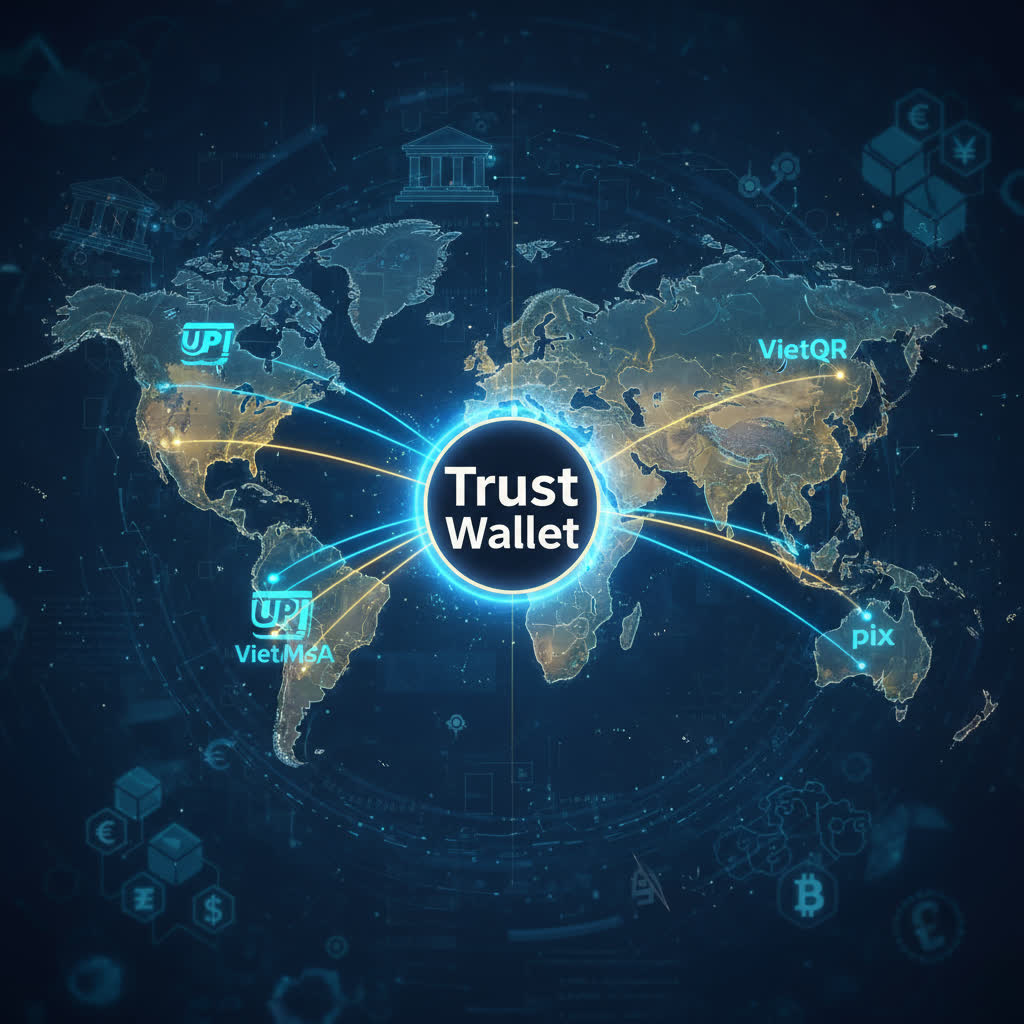How to Secure Your Crypto Wallet: Tips and Best Practices for 2025
As cryptocurrency adoption surges in 2025, securing your crypto wallet has become more critical than ever. With digital assets valued in the billions and cyber threats growing increasingly sophisticated, protecting your private keys and wallet access is essential to safeguard your investments. This comprehensive guide expands on proven strategies and best practices to help you secure your crypto wallet effectively, whether you use hot wallets for daily transactions or cold wallets for long-term storage.

Understanding Crypto Wallet Security in 2025
A crypto wallet does not store your coins but holds the private keys that grant access to your assets on the blockchain. Losing control of these keys means losing your funds permanently. Unlike traditional banking, there is no central authority to recover stolen or lost cryptocurrencies, making wallet security paramount.
In 2025, the crypto ecosystem has matured with more robust wallet options and security features, but users must remain vigilant. Cybercriminals employ techniques like phishing, malware, SIM swapping, and social engineering to compromise wallets. Therefore, a layered security approach combining technology and user discipline is necessary.
Types of Crypto Wallets and Their Security Implications
Hot Wallets
Hot wallets are connected to the internet and include mobile apps (e.g., Trust Wallet, MetaMask), desktop applications, and web wallets. They offer convenience for frequent trading and DeFi interactions but are more vulnerable to hacking and malware.
Security Tips for Hot Wallets:
-
Use wallets from reputable developers with strong security track records.
-
Enable two-factor authentication (2FA) wherever possible.
-
Avoid storing large amounts of cryptocurrency; keep only what you need for active use.
-
Regularly update wallet software to patch vulnerabilities.
-
Be cautious about connecting wallets to unknown dApps or websites.
Cold Wallets
Cold wallets store private keys offline and include hardware wallets (Ledger Nano X, Trezor Model T) and paper wallets. They provide the highest security against online threats and are ideal for long-term storage of significant holdings.
Security Tips for Cold Wallets:
-
Purchase hardware wallets directly from manufacturers to avoid tampering.
-
Store recovery seed phrases securely offline in multiple physical locations.
-
Never share your seed phrase or private keys with anyone.
-
Use hardware wallets with strong encryption and secure elements.
-
Consider multi-signature wallets for additional security layers.
Essential Security Practices for Crypto Wallets in 2025
1. Use Strong, Unique Passwords and Password Managers
Create complex passwords combining letters, numbers, and symbols, unique to each wallet or exchange account. Avoid reusing passwords across platforms. Password managers like LastPass or Bitwarden can securely generate and store your passwords, reducing the risk of weak or reused credentials.
2. Enable Two-Factor Authentication (2FA)
2FA adds a critical security layer by requiring a second verification step beyond your password. Prefer authentication apps such as Google Authenticator, Authy, or hardware security keys (YubiKey, Google Titan) over SMS-based 2FA, which is vulnerable to SIM swapping attacks.
3. Keep Private Keys and Seed Phrases Offline and Confidential
Your private keys and seed phrases are the master keys to your crypto assets. Store them physically in secure, fireproof, and waterproof locations. Avoid digital storage such as cloud services or photos on your phone, which can be hacked or lost.
4. Beware of Phishing and Social Engineering Attacks
Phishing remains a top threat, where attackers impersonate legitimate services to steal credentials. Always verify URLs, avoid clicking unsolicited links, and never share your private keys or seed phrases. Use bookmarks for trusted sites and enable browser security extensions.
5. Use Hardware Wallets for Large Holdings
Hardware wallets keep your keys offline, protecting against malware and remote attacks. In 2025, devices like Ledger Nano X and Trezor Model T offer Bluetooth or USB connectivity with secure elements to safeguard keys. Use hardware wallets especially for storing significant amounts of crypto.
6. Avoid Public Wi-Fi for Wallet Access and Transactions
Public Wi-Fi networks are often unsecured and can expose your data to interception. Use trusted private networks or VPNs when accessing wallets or making transactions to prevent man-in-the-middle attacks.
7. Regularly Update Wallet Software and Device Firmware
Developers release updates to fix security vulnerabilities and improve wallet functionality. Keeping your wallet app and hardware firmware updated is vital to protect against emerging threats.
8. Use Multi-Signature Wallets for Enhanced Security
Multi-signature wallets require multiple private keys to authorize a transaction, reducing the risk of theft if one key is compromised. This is especially useful for organizational funds or large personal holdings.
Additional Tips for Maintaining Wallet Security
-
Segment Your Crypto Holdings: Keep only small amounts in hot wallets for daily use and store the majority in cold wallets.
-
Backup Your Wallet: Create multiple backups of your seed phrase and store them in geographically separate, secure locations.
-
Educate Yourself Continuously: Stay updated on new threats, wallet features, and security best practices.
-
Use Reputable Exchanges and Wallets: Choose wallets and exchanges with strong security reputations and regulatory compliance.
-
Monitor Wallet Activity: Regularly check your wallet for unauthorized transactions or suspicious activity.
Common Mistakes to Avoid
-
Sharing seed phrases or private keys online or with untrusted parties.
-
Using weak or reused passwords.
-
Ignoring software updates.
-
Falling for phishing scams or fake wallet apps.
-
Connecting wallets to unverified dApps or websites.
-
Purchasing hardware wallets from unofficial sources.
The Future of Crypto Wallet Security: Trends to Watch
-
Biometric Authentication: Increasing integration of fingerprint and facial recognition for wallet access.
-
Social Recovery Mechanisms: Allowing trusted contacts to help recover lost wallets securely.
-
Decentralized Identity Solutions: Enhancing privacy and security through blockchain-based identity verification.
-
Post-Quantum Cryptography: Preparing wallets for future quantum computing threats.
-
AI-Powered Security: Using artificial intelligence to detect and prevent suspicious wallet activity in real-time.
Conclusion
Securing your crypto wallet in 2025 requires a combination of choosing the right wallet type, implementing strong security measures, and maintaining vigilant user habits. Whether you opt for the convenience of a hot wallet or the robust protection of a cold wallet, following best practices like using strong passwords, enabling two-factor authentication, safeguarding your private keys offline, and avoiding risky behaviors will significantly reduce your risk of loss.
As the crypto landscape continues to evolve, staying informed and proactive about wallet security is the best way to protect your digital assets and confidently participate in the exciting world of cryptocurrencies.
References:
-
Crypto Wallet Security Best Practices, Apriorit
-
How to Secure Your Cryptocurrency in 2025: A Complete Guide, NFTevening
-
How To Secure Your Crypto Wallet In 2025, Cryptomaniaks
-
Essential Crypto Security Guide for 2025 Beginners, Smart Liquidity
-
Security 101: How to Safely Store Your Crypto in 2025, Reddit
-
How to Secure Your Cryptocurrency Investments in 2025?, Big News Network
-
Essential Security Tips for Cryptocurrency Wallets in 2025, Bitcoin.com
Ready to start your cryptocurrency journey?
If you’re interested in exploring the world of crypto trading, here are some trusted platforms where you can create an account:
- Binance – The world’s largest cryptocurrency exchange by volume.
- Bybit – A top choice for derivatives trading with an intuitive interface.
- OKX – A comprehensive platform featuring spot, futures, DeFi, and a powerful Web3 wallet.
- KuCoin – Known for its vast selection of altcoins and user-friendly mobile app.
These platforms offer innovative features and a secure environment for trading and learning about cryptocurrencies. Join today and start exploring the opportunities in this exciting space!

Join our crypto community for news, discussions, and market updates: CryptoBCC on Telegram.

Disclaimer: Always do your own research (DYOR) and ensure you understand the risks before making any financial decisions.




